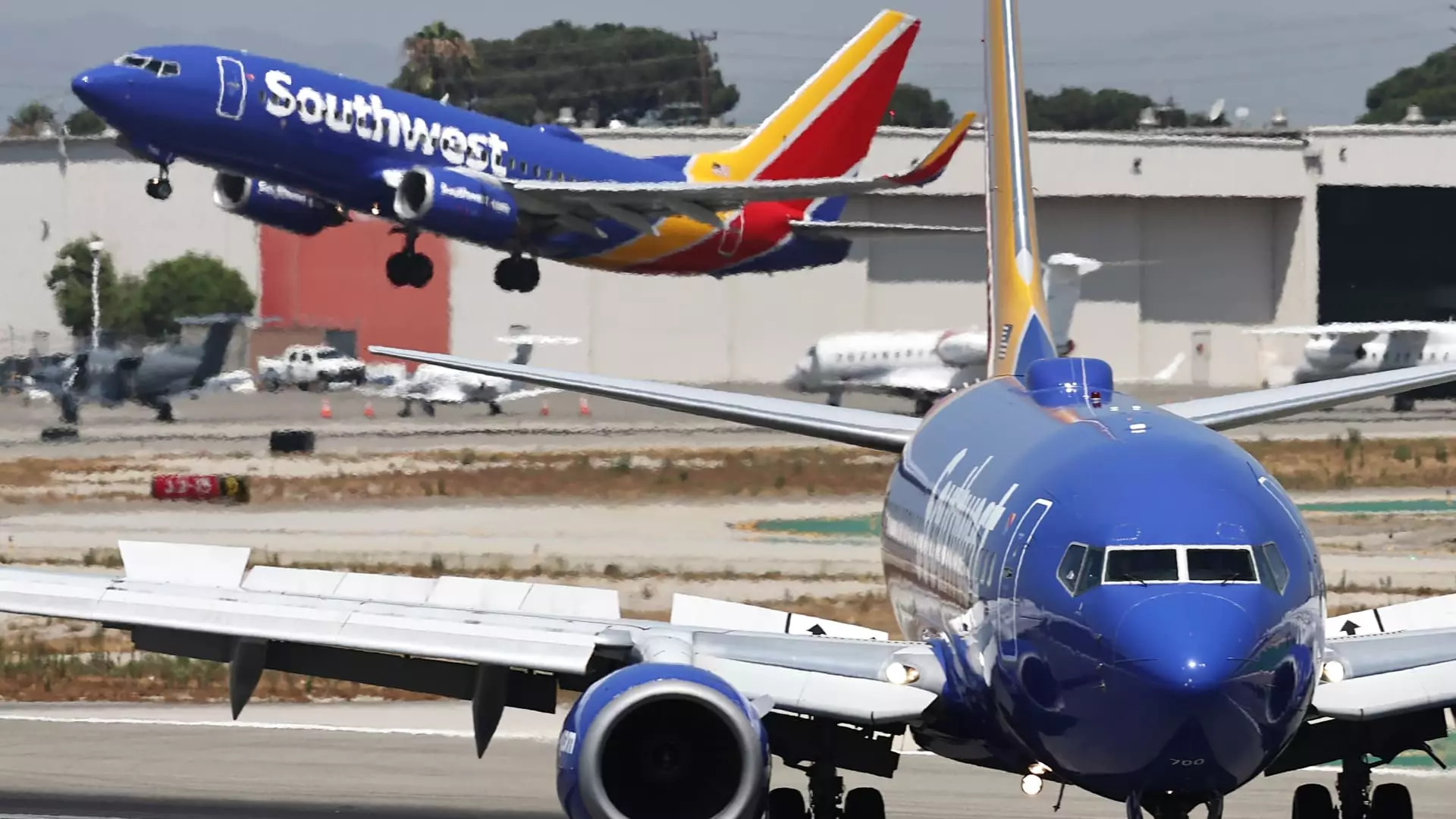In a recent strategic shift, Southwest Airlines boosted its third-quarter revenue predictions, signaling a potentially positive turn for the airline as it grapples with external pressures and operational challenges. The updated forecast indicates unit revenue could rise by up to 3% compared to the same quarter last year, a marked improvement from the earlier expectation of a decline by as much as 2%. This increase is notably attributed to the rebooking of passengers stranded by competitors during a recent operational hiccup caused by the CrowdStrike outage. Such a pivot not only reinforces Southwest’s adaptability but also highlights its aim to capitalize on opportunities in a challenging market.
In a bold move to fend off activist investors like Elliott Investment Management, Southwest Airlines announced a $2.5 billion share buyback authorization. This significant financial gesture aims to strengthen shareholder confidence while showcasing that the airline is intent on delivering value through judicious capital management. Alongside this, the introduction of industry veteran Bob Fornaro to the board is a strategic alignment with experienced leadership. Fornaro’s history with both Spirit Airlines and AirTran presents a wealth of knowledge that could benefit Southwest as it refines its business strategies.
On the operational front, Southwest is undergoing a substantial transformation reminiscent of significant changes within its half-century legacy. Recently introduced strategies like assigned seating and extra-legroom options represent a departure from its traditional model while maintaining its core identity. Interestingly, the airline remains committed to its long-standing policy of free checked luggage, citing that this practice enhances market share and outweighs potential revenue losses from baggage fees. This blend of innovation and tradition is crucial in sustaining competitive advantage and customer loyalty.
As Southwest Airlines navigates this complex landscape, internal cohesion around leadership remains a pressing issue. CEO Bob Jordan and his executive team are under scrutiny from Elliott, which has expressly called for changes at the top management level. This kind of external pressure may catalyze urgent shifts in operational and strategic focus, creating an environment where swift adaptation is necessary. Furthermore, Southwest’s recent announcement of service reductions in Atlanta and potential cuts to its workforce underlines the extent of its cost management strategies in a bid to maintain profitability amid heightened operational costs.
The upcoming year is pivotal for Southwest Airlines as it embarks on a journey of reinvention. With impending changes in leadership, a renewed financial outlook, and a transparent approach to operations, the airline holds the promise of fostering a more resilient and strategic business model. As investors scrutinize these developments, the challenge will be for Southwest to harmonize legacy practices with modern consumer expectations, thus defining its path forward in the increasingly competitive airline sector.
As the airline continues to adapt and evolve, the focus will undoubtedly be on sustainable practices that not only resonate with investors but also enhance the travel experience for its customers. Ultimately, the success of these efforts hinges on effective communication, strategic agility, and a forward-looking vision that reinforces Southwest Airlines’ standing as a leading player in the aviation industry.

